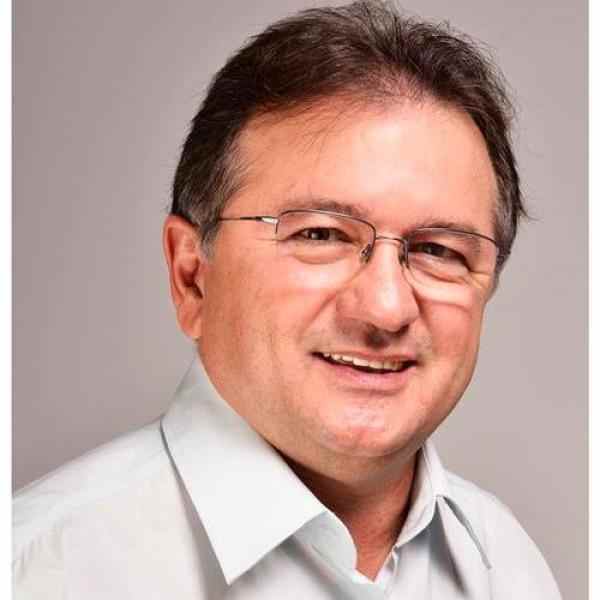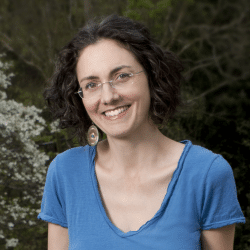Introduction
Merlong is helping small farmers in the state of Piaui overcome historically defeatist attitudes to become more productive. Through CERMO, a non-profit educational and consulting organization he co-founded, he hopes to help the region's small farmers become more productive and combine to achieve greater market power.
The New Idea
Piaui is Brazil's poorest state. Most of its inhabitants are small landholders or landless migrant workers, and their inefficient farming practices, along with a lack of cooperative marketing efforts, contribute significantly to its depressed economy. Merlong co-founded CERMO (Manoel Otavio Center for Popular Rural Education) to serve two purposes: 1) to help small farmers with practical farming instruction, thereby increasing their productivity and incomes and 2) to link local farmers' groups that now have little staff, technical knowledge, or marketing leverage, and build their capacity through collaboration.Merlong sees many opportunities for increasing farmer incomes through attention to better crops, better planting methods, and better production techniques. Gatherers of the babacu coconut, for example, now sell the fruit whole to industry middlemen at rock-bottom prices. With just a minimum of processing, the communities could extract and sell the oil, which commands a higher price than the original coconut, and retain the flesh, an excellent feed for pigs and chickens.As another example, CERMO is proving the effectiveness of "irrigation by vase."Farmers bury a porous pot near their passion fruit plants and fill it with water every three days. This allows for the timely and efficient watering of plants in the dry northeastern soil. CERMO is also experimenting with alternative techniques in vegetable gardening, poultry farming, bee keeping, and fruit farming.Efforts to create a state-wide movement of small farmers complement Merlong's farming training programs. The Deliberative Council of CERMO is comprised of representatives of various rural organizations: rural workers' unions, producers' and consumers' associations, town municipalities, and other education centers. CERMO is the first group to bring them all together, thereby ensuring rapid dissemination of Merlong's ideas. More importantly, it provides a necessary institutional foundation for a concerted attack on the causes of centuries of small farmer penury.
The Problem
The roots of Piaui's poverty reach deep into history, when sugar plantations and cattle ranches established the dominance of large estates. Just 1,400 large estates account for over 40% of the total land farmed in Piaui, while 195,000 of the region's small farms (less than 10 hectares) comprise only 3.35% of the total.This extreme concentration of land ownership, coupled with low land-use and productivity, prevents the state's natural potential from being developed. With neither valuable primary products nor industry, Piaui's economy is propped up by federal government transfers, most of which go to pay government salaries and ultimately flow south to pay for imports.More than half of Piaui's 2.5 million residents work on small farms, but productivity lags behind other regions. Exposed to little of the new technical know-how, small farmers in Piaui continue to slash and burn, impoverishing the soil and contributing to its erosion. Traditional bee-keeping depends on burning the hives, which produces second-class honey and interferes with the bees' reproduction. Rice farmers process their product in the city and take back only the polished rice to eat, leaving behind the grayish pulp covering the grain, the part richest in nutrients. Merlong sees these and many other areas as ripe for improvement.The 140,000 families that continue to work as migrant workers fare even worse. Splintered among many small organizations, they are powerless against the large landholding employers.
The Strategy
Merlong's strategy has two parts. He and his co-workers seek ways of increasing productivity and then spreading their innovations directly, through instruction and extension work, and indirectly, through CERMO's network.He also stimulates political and organizational activities to bring local initiatives out of isolation, thereby helping create a vibrant movement of small farmers throughout the state. Most of CERMO's technical work takes place on its 48-acre farm outside of Teresina, the state capital. Here it has set up experimental plots and converted abandoned warehouses into support units: classrooms, canteen, a honey-center, etc. Staff give 3-day courses in various areas of interest to small farmers, bringing together theory and practice in the demonstration plots.CERMO's broader impact on rural development comes from several of its other initiatives. Comprised of representatives from various local associations, CERMO is working to widen the net, encouraging groups that restrict themselves to trade-union organizing of rural workers to take advantage of the mobilizing power of organizing on the basis of small-farmer demands.Merlong designs many of his agricultural programs with an eye to such coalition-building. Recently, for example, he brought bee-keepers together in a joint marketing program and mobilized public support through meetings and seminars explaining the importance of honey and questioning the government's failure to develop policies for the sector.Merlong and his colleagues are also intensively monitoring and documenting the development patterns of several communities in the state. After they complete this three-year study, they will publish the results and engage the government in a debate about its practices and policies concerning the small farmers in Piaui. In other words, Merlong is unifying the state's small farmers and their allies, and he and CERMO are emerging as the key institution in formulating an alternative development policy for Piaui farmers.
The Person
Merlong was born and educated in Piaui. Though he lived in the capital, his grandparents were small farmers and his father worked on a plantation until he was a young man. As an adolescent, Merlong was influenced by several church youth groups he joined. They led him to reflect on the human condition and its many sadnesses in Brazil. At university he was active in the student movement at a time when student government was coming back to life following the military regime. Courses in economics and history convinced him that working for effective policies for small farmers is the first step toward overcoming Piaui's poverty. Following university, he co-founded CEPAC, the Piaui Popular Education Center, and through this and his subsequent activities with rural workers' unions, he took on the problems that daily confront Piaui's urban and rural workers.




